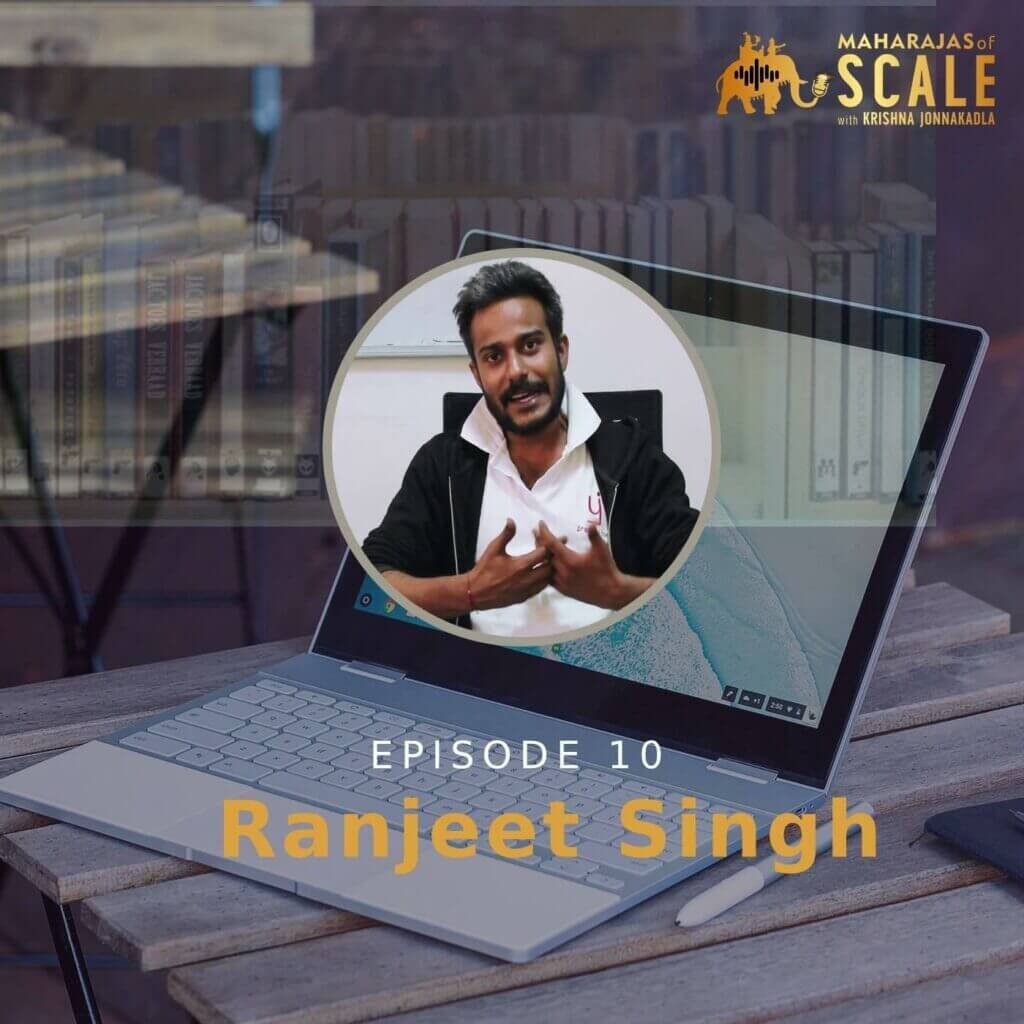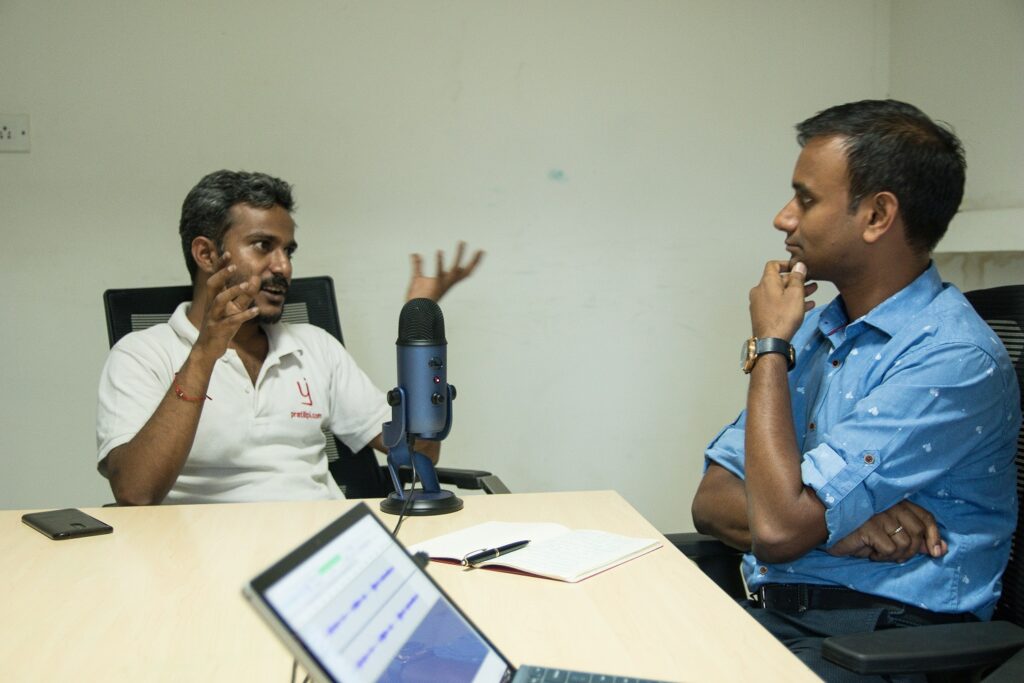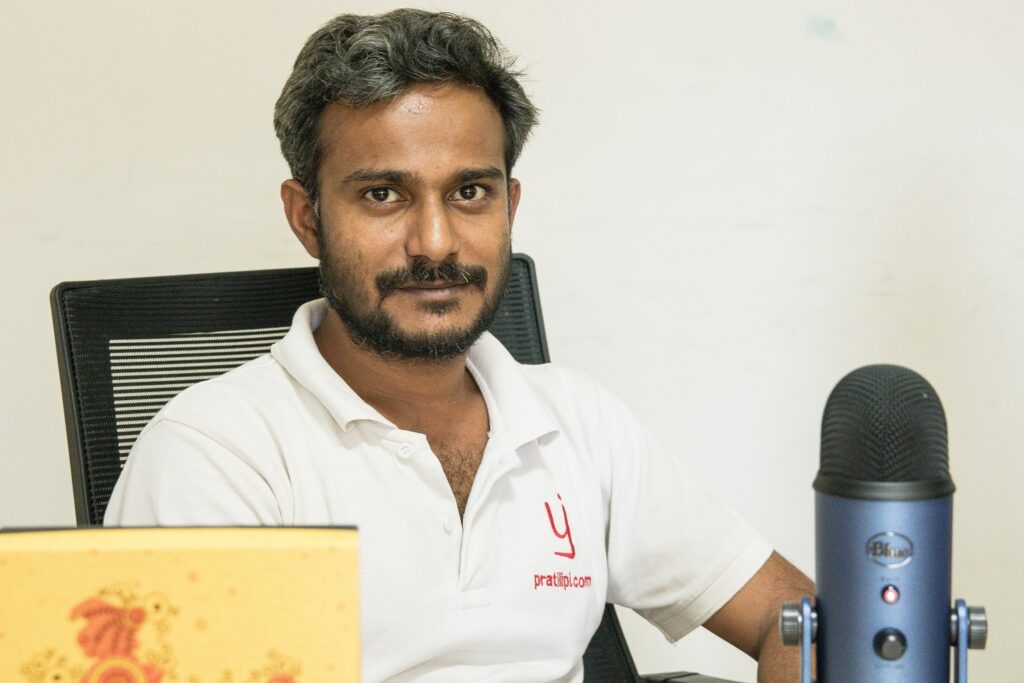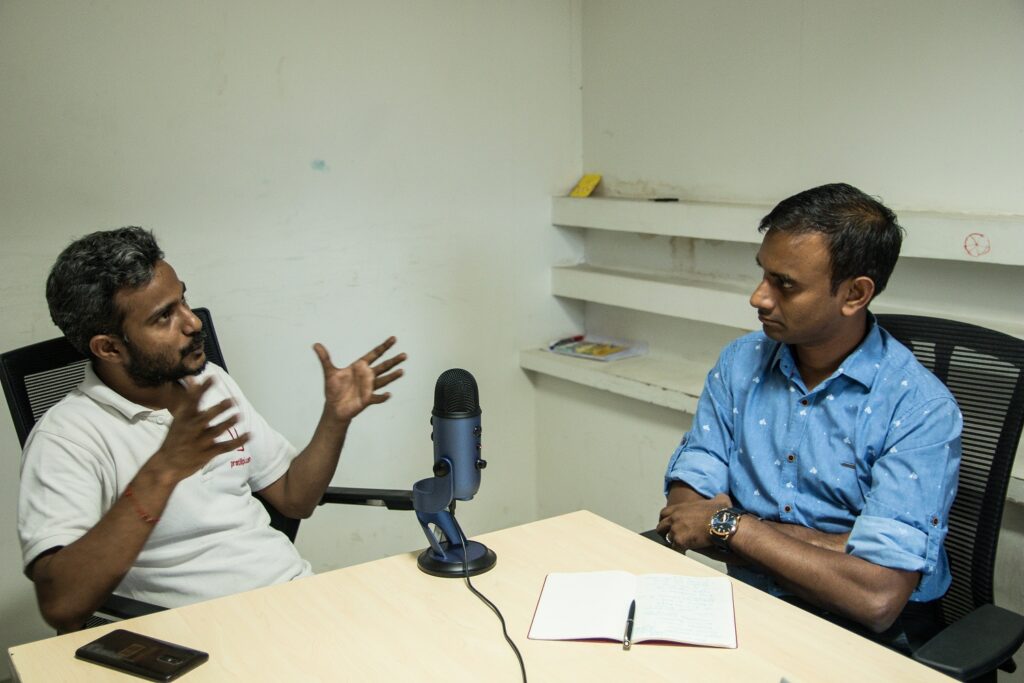
Story Telling at Scale by Solving Access Problem for Indian Language content
The story of all stories on Pratilipi (@TeamPratilipi) starts with the protagonist Ranjeet Singh(@thebmr). His weapon of choice – reading. With the love of books, he found means to read more by making deals with shopkeepers who sold books to watch their stores while they were away; He borrowed books on Teacher’s library cards so he could borrow more. Listen to Ranjeet of Pratilipi talk about story telling at scale by solving access problem for Indian language content.
With a little more love towards Hindi literature, he realized that though readers cherished reading in whichever language, they just couldn’t because of lack of access. Indian Language content suffered from an access problem both in publishing as well as in reading. For a few years, he thought that someone else could build this platform and he could make use of it. Eventually, with a push from his friends, he rose to the occasion. He created a digital platform with content in different languages.
With the rhythm of heartbeats of all narratives, the whirlpool of words weaved into another story.
To quote Rumi,
“Don’t be satisfied with stories, how things have gone with others. Unfold your own myth.”
In this episode, Ranjeet of Pratilipi talks Story Telling at Scale.
Here are a few quotes from the episode
1:53
I personally don’t like the word vernacular primarily because of connotations. While I am not a grammar nazi, I do think that certain words should not be used in certain situations because of the condition of how people think about those words. I like to say that Pratilipi is an Indian language platform. Some of these Indian languages actually much bigger than the almost any other language that you would not call vernacular.
16:07
So there’s I mean, there’s a like a real part of it and rational part of it. So, the real part of it, we have just spoken about. The rational part of it is also that one of the reasons that I became an engineer and like, I will probably be the first engineer in maybe 50 villages or 80 villages was because I knew that there’s something called engineering. Even after that one of the reasons and one of the ways that I actually became a founder is because I knew that there is something called a founder or an entrepreneur.
19:47
It’s almost impossible to believe like if you just wanted to have fun, you can pick any of the ancient stories and you can just have fun. But if you kind of build deeper you would say, there will be exception, but almost all of the stories would actually have a much, much deeper meaning and explaining that in such a simple story that a 10-year-old child can understand. It’s genius.
Experience Matters
23:03
My experience has always been that people’s core beliefs or aspirations, what makes them tick is actually fairly similar across cultures across age groups across a bunch of different things. It’s obviously possible that their priorities are slightly different. Like, if I don’t have enough money to eat, I’m probably not going to pay you for insurance. So that’s obviously there. But apart from that, I think people’s fundamental desires or aspirations are fairly similar. So like when you’re thinking about building a product, for example, and you’re thinking in the right direction, it’s just that you have to go and talk to the same users and ask similar questions except for the fact that the answers might be different.
32:43
I was always of the belief that my strength is not figuring out a story. My strength is largely about building a platform where we can figure out that which stories are the right stories for what kind of people, instead of me playing a gatekeeper role.
50:20
So for example in Hindi pulp fiction is very popular, in Tamil, science fiction is very popular, in Bengali, like a lot of society in life and friendship lead to the stories are more popular, but like these are essentially more about genres and taste and less about like broad generalizations.
Ranjeet Recalls a Crazy Story!
56:02
I think I’m forgetting the exact name of the writer but there’s somebody called Zaidi would publish a story called Mayavi Hindiya back in 2015. That was one of the first crazy stories that I read. I was like, I was so freaking happy, basically talks about there’s a guy like a small kid, I think, maybe 10-11-12 year old, who is afraid of maths and then an alien comes to his neighborhood.
The alien captures this small kid into a world where the only way to get out of that world is to solve a lot of mathematical problems. And this alien being basically kind of captures, not captures, kind of takes over this small child’s body. So, he’s living his life, the alien guy as a God on earth. And this kid is basically trapped in that world where the only way to get out of is by solving maths problem. I thought like, its phenomenal.



Now Pratilip has about 12 languages and over 1.3 million stories. There are plenty of more stories to be told and read.
Show Notes
@thebmr Follow Ranjeet on Twitter
Pratilipi Try Pratilipi to read and write your stories
Some books and authors discussed on the show:
Books by Nirala – Saroj Smriti
Books by Dinakar
Let’s look at some prominent words from the episode

Follow Maharajas of Scale On Twitter (@maharajaofscale)
